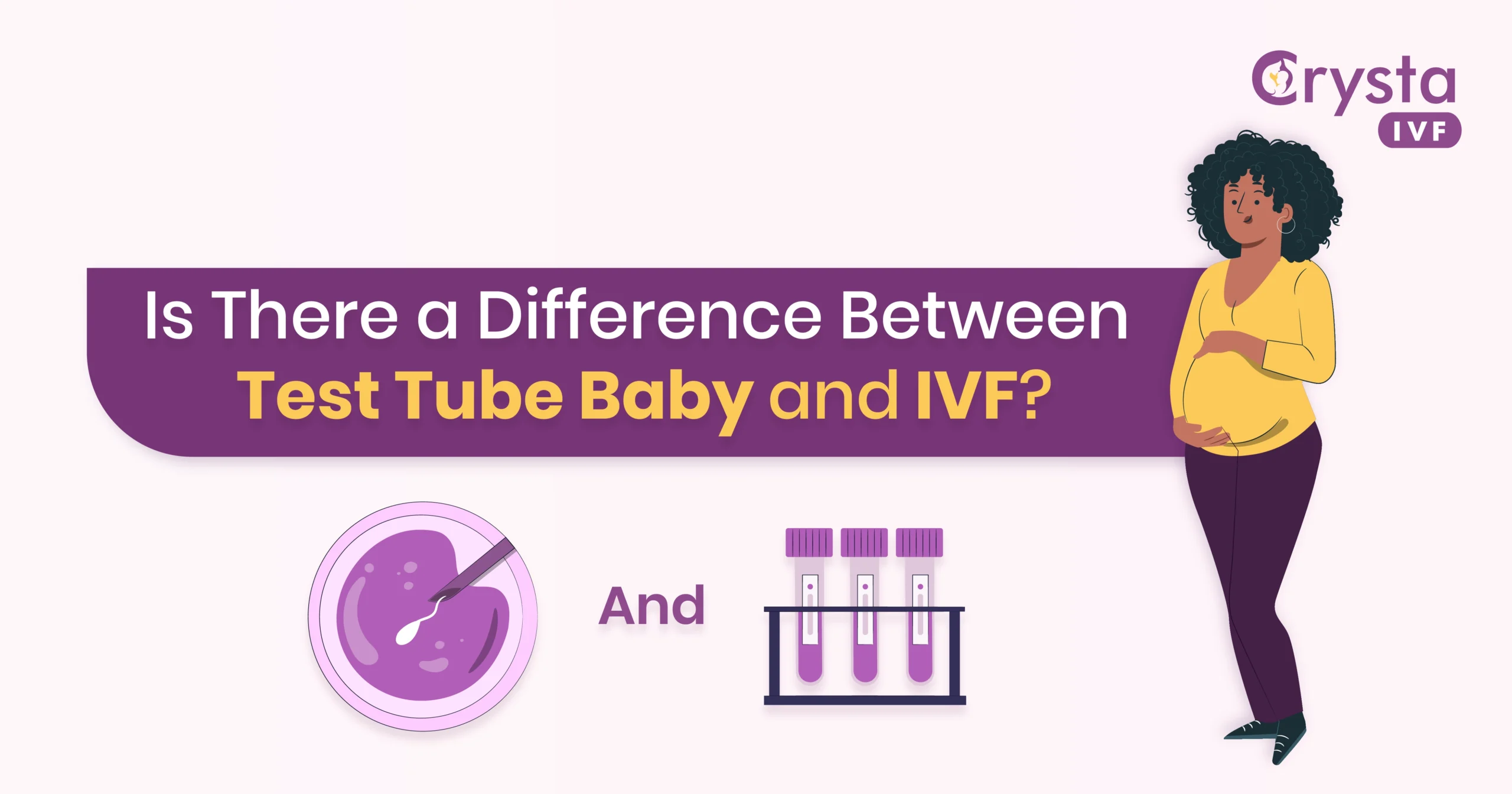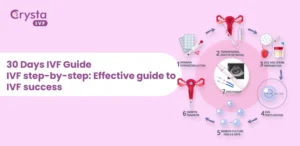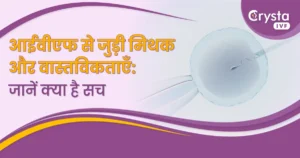Test tube baby is a non-medical term often used for IVF treatment. The process used to develop a test tube baby is known as IVF. Technically, there is no difference between Test tube baby and IVF. Test Tube Baby means the embryo development procedure is done outside the woman’s body, in a test tube-like container. “Test tube baby” was a simpler way for the public to understand the concept of fertilization happening outside the body. Today, the most accurate term used in the medical community is “IVF baby.” It means that the baby was conceived through in vitro fertilization. There are no babies developing in test tubes! IVF is a process where fertilization happens outside the body, but a successful pregnancy still relies on implantation and growth within the woman’s uterus. Here in this blog, let’s explore more about the IVF baby, who needs IVF treatment, and the procedure involved in developing a test tube or IVF baby.
Who needs IVF or Test Tube Baby treatments?
Couples struggling with infertility can consider IVF treatment to achieve parenthood. The couples struggling with the below factors can choose IVF-
Female infertility factors
- Blocked Fallopian tubes
- Ovulation disorders
- Endometriosis
- Uterine fibroids
- Premature ovarian failure
Male infertility factors
- Low sperm count
- Abnormal sperm morphology
- Blockages
- Unexplained Infertility
IVF Treatment and Procedure
In vitro fertilization (IVF) is an ART procedure that helps couples struggling with conception to achieve pregnancy. Here are the steps involved in the development of an IVF or test tube baby-
1. Consultation and Pre-Treatment
The process begins with consulting the fertility specialist, who will assess your condition and medical history and discuss the success rates and potential risks of IVF. Before starting IVF, your doctor will recommend various tests to evaluate your hormone levels, sperm health, and overall fertility.
2. Ovarian Stimulation
Several medications will be used to stimulate the ovaries to produce multiple mature eggs instead of the usual single egg released during a natural cycle. This will help to increase the chances of fertilization.
3. Egg Retrieval
Once the eggs have matured, a minimally invasive procedure using ultrasound will be performed to retrieve them from the ovaries.
4. Sperm Retrieval
In the next step, a semen sample will be collected from the male partner. In some cases, sperm retrieval techniques like surgical sperm extraction (TESE) might be required.
5. Fertilization
In a laboratory dish, the sperm and eggs are combined to achieve fertilization. Sometimes, a procedure called intracytoplasmic sperm injection (ICSI) might be used to inject a single sperm directly into the egg.
6. Embryo Development
The fertilized eggs are monitored for cell division and development over the next few days.
7. Embryo Transfer
One or more healthy embryos are chosen and transferred via a thin catheter through the cervix and into the woman’s uterus for implantation.
8. Pregnancy Test
After a specified waiting period, a pregnancy test is performed to confirm if implantation has been successful.
The IVF process can be physically and emotionally demanding. Multiple cycles might be required to achieve pregnancy. There are different variations of the IVF procedure, such as using donor eggs, sperm, or embryos.
Also Read: How many injections are required for an IVF treatment?
How to Choose the Best IVF Clinic in Delhi?
There are hundreds of IVF centres available, but choosing the right and best IVF clinic that promises you guaranteed IVF treatment is tough. Here are some tips for choosing the right IVF clinic in Delhi.
Success Rates:
Before finalizing any IVF clinic in Delhi, research it. Look at the success rates, live births, and successful pregnancies through IVF. Statistics of positive records will help you to make your decision and choose the right clinic.
Expertise and Experience:
Discuss your concerns with the experts, and if you find yourself confident in trusting the experts, then go for it. Asking about their experience and expertise in the specific field, along with the proficiency of the support staff, is vital. A skilled team with ample experience in IVF treatments ensures increased chances of successful IVF treatment.
Facilities and Technologies:
Ensure that the clinic you choose has the best state-of-the-art facilities and cutting-edge technologies. Advanced equipment and modern methodologies increase the chances of IVF success and efficacy of IVF treatments.
Conclusion
In conclusion, “Test Tube Baby” and “IVF” are not two sides of the same coin; they are the same thing, just that their names are different. At Crysta IVF, we understand the journey of parenthood is not easy for everyone. That’s why we offer more than just advanced technology and experienced specialists. We provide a compassionate, patient-centric environment where the professional experts truly understand and resolve your concerns. From personalized treatment plans to dedicated fertility counseling, we walk beside you every step of the way, celebrating your triumphs and supporting you through challenges. With our exceptional success rates and unwavering commitment to your well-being, Crysta IVF is not just the best IVF hospital in Delhi; it’s your partner in creating the family you deserve. Choose Crysta and embark on your IVF journey with confidence and hope.




